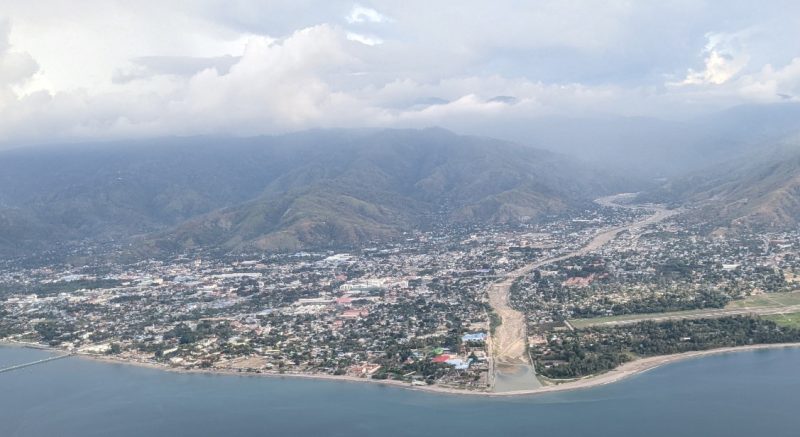
Birds-eye view of the capital city of Dili, Timor-Leste.
In July 2022, MCC and the Government of Timor-Leste signed a compact to address the human capital binding constraint to economic growth through two projects investing in water and sanitation and education. These investments will improve the health and skills of people in Timor-Leste by reducing the disease burden caused by contaminated water sources and enhance teaching and learning at the secondary school level. The $420 million Timor-Leste Compact, together with an additional contribution of $64 million from the Government of Timor-Leste, represents a total $484 million investment in Timor-Leste.
MCC and the Government of Timor-Leste are currently preparing for the five-year compact implementation period, by undertaking steps to satisfy conditions precedent, conduct additional project preparatory activities, and set up the accountable entity called the Millennium Challenge Account Timor-Leste (MCA-TL), which will oversee compact implementation on behalf of the Government of Timor-Leste.
Program Projects
-
$40,190,538
Project Total Amount -
$0
Project Amount Committed -
$0
Project Amount Expended
The Teaching and Leading the Next generation of Timorese (TALENT) Project aims to improve student learning by investing in teacher and school leader education and training. The TALENT Project will establish the Center of Excellence (CoE) as a training and professional certification center for current and future secondary school teachers and school leaders. The TALENT Project will also include interventions focused on increasing the number of qualified individuals in secondary teaching and leadership positions.
-
$308,205,050
Project Total Amount -
$0
Project Amount Committed -
$0
Project Amount Expended
The Water, Sanitation, and Drainage (WSD) Project will reduce disease-causing pathogens in groundwater and piped and stored drinking water through a catalytic infrastructure investment, which will introduce the country’s first centralized wastewater treatment system, improve related drainage, and build a plant to produce disinfectant chemical for the supply of clean drinking water across the capital city of Dili and four nearby municipalities. The Project will also support key policy and institutional reforms for long-term sustainability and introduce social and behavior change interventions to improve household water management and hygiene practices.


